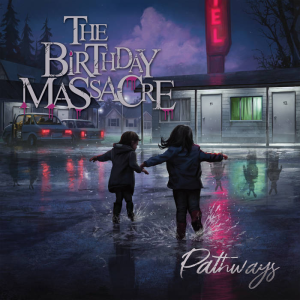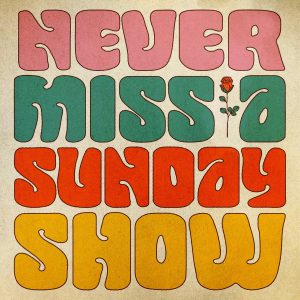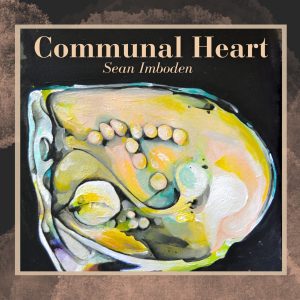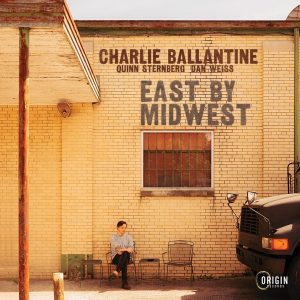Dozens of new albums arrive at Maxazine’s editorial staff every week. There are too many to listen to, let alone review them. It ensures that too many albums are left behind. And that’s a shame. That is why today we post an overview of albums that arrive at the editors in short reviews.
Photo (c) Jorge Fakhouri Filho
The Birthday Massacre – Pathways
The band name sounds more intense than the music this Canadian formation makes. Until 2002, the band had a different name, Imagica. Inspired by a fantasy novel by Clive Barker. Afterwards, the name was changed to avoid confusion with another group. They used the title of one of their songs for this and also gave that title a different name; are you still following? The music primarily blends darkwave with industrial. The new album begins with the hardest track of the entire record. “Sleep Tonight” has a typical industrial riff and sound in the guitar; after this, darkwave and electronic rock mainly take over. The exception is during “Whisper,” where a sort of demon ironically begins to “sing.” There is anything but whispering there. Compared with their other work, this album manages to hold attention, and the band sounds more mature. “Pathways” is a pleasant record for lovers of electronic rock and darkwave, with occasionally a notch more violence. (Rik Moors) (7/10) (Metropolis Records)
The Grateful Dead – Never Miss a Sunday Show
Like a long, dusty road stretching through the American soul, “Never Miss A Sunday Show” winds through thirty years of music history. This collection of 19 live tracks, all recorded during The Grateful Dead’s legendary Sunday performances, feels like a road trip through the collective memory of generations of Deadheads. The Sunday shows were always something special – an almost religious experience where the band pushed their boundaries. Here you hear why. The jams breathe, expand, and take you to places you can’t point to on a map, but where your soul feels at home. Although Jerry Garcia hasn’t been among us for three decades, these recordings resonate with a vibrancy that defies time. For veterans, it’s a reunion with old friends; for newcomers, the perfect entry into an endless musical odyssey. This isn’t a nostalgic tribute, but a living document that proves some fires never go out. An essential addition to any collection, capturing the soul of America’s greatest musical travellers. (Jan Vranken) (7/10) (Warner Music Group)
Communal Heart – Sean Imboden Large Ensemble
Few will recognise the name Sean Imboden. Although this American composer and saxophonist has been making his mark for a few years and has released two solo albums, he’s struggling to make a name for himself, especially in Europe. And that’s quite strange because “A Dreamer’s Journey” which came out last year, while not earth-shattering, is worthwhile. That album features the compositions “Fire Spirit” and “Portal Passage,” which we also find on this “Communal Heart,” with one big difference. More specifically, the difference is made by a seventeen-member big band. The conclusion is quick and justified: the big band versions are much more exciting than the performances on “A Dreamer’s Journey.” Now, you can have a piece for saxophone played by other brass instruments, but that doesn’t give you material for a big band. That requires balance and especially a feel for timing in the arrangements. Listen consecutively to “Fire Spirit” on the solo album and then to the version by the “large ensemble.” Hear the liveliness, the pace the piece has gained by playing with the dynamics between the various brass instruments. Besides the two “older” pieces, we get three new tracks, of which “Certified Organic” with an almost orgasmic energy is the best that Sean Imboden has to offer on this mini-album. This tastes like more than the 37 minutes that “Communal Heart” lasts. (Jeroen Mulder) (8/10) (Sean Imboden)
Sault – 10
Like a thunderclap in clear skies, the mysterious British formation Sault appears again on the musical horizon. Their newest work, simply titled “10,” arrives as we’ve come to expect from producer Inflo, without announcement, a musical wanderer who appears when you least expect him. The voice of Cleo Sol, Inflo’s life partner, floats through the tracks like a lonely car over deserted highways – majestic, unmistakable, and as if made for these soulful musical landscapes. After her recent solo excursion, she returns to the Sault family, where her vocals are the perfect companion for Inflo’s musical vistas. The opening track “T.H.” immediately takes you back to Prince’s glory days, a musical time travel to a period when soul and funk were still handmade, not programmed. The groove is lush, like a fertile valley between barren hills, while the production further solidifies Inflo’s legendary status, as if the man himself has long known that his name will one day be mentioned in the same breath as Quincy Jones and George Martin. What distinguishes “10” from earlier Sault works is the almost tangible organic quality. Where electronic elements previously dominated, we now hear an ensemble of living instruments that breathe and sweat. It’s as if Sault decided that the digital highway was becoming too clinical and chose the dusty side roads where real stories emerge – a return to the essence of soul. With this new album, Sault proves once again that they represent the absolute top of contemporary soul music. But then again, we say that with every new Sault album, don’t we? Perhaps that’s exactly what makes these musical nomads so special – they keep surpassing themselves, every time we think they’ve reached their peak. (Anton Dupont) (9/10) (Forever Living Originals)
Charlie Ballantine – East by Midwest
It must have been a monumental task: the recording of Lennon’s “Strawberry Fields Forever.” In total, the Beatles worked more than 45 hours on the recordings, in different tempos and even keys. The track as it ended up on “Sgt. Pepper”, is a mix of various recordings. It takes an immeasurable amount of courage to strip this Beatles classic to the bone so that it’s suitable for just a guitar, bass, and drums. Guitarist Charlie Ballantine ventures to do so on “East by Midwest.” And how painful the result is. As if Ballantine wants to prove something, the song also holds up if you remove all the technical excellence of the recording studio in ’67. It doesn’t. The performance with just the slightly distorted sound of the guitar and the drums is nothing less than a flogging. While Ballantine is a good guitarist, we hear that on tracks like “Trinkle, Trinkle” and “Modern Bohemian.” Fine tracks, even in the minimal lineup with only bassist Quinn Sternberg and drummer Dan Weiss. But unfortunately, Ballantine commits another offence against a Beatles song: “Tomorrow Never Knows.” That was once covered by Phil Collins, who stayed close to the original. With good reason. Ballantine throws the effects box against his guitar while Weiss just messes around. The result is that the song is barely recognisable from a distance. Ballantine is praised as one of the best, most versatile guitarists in jazz. We hear that on “When Will the Blues Leave.” Nevertheless, destroying two Beatles classics is truly unforgivable. (Jeroen Mulder) (5/10) (Origin Records)






